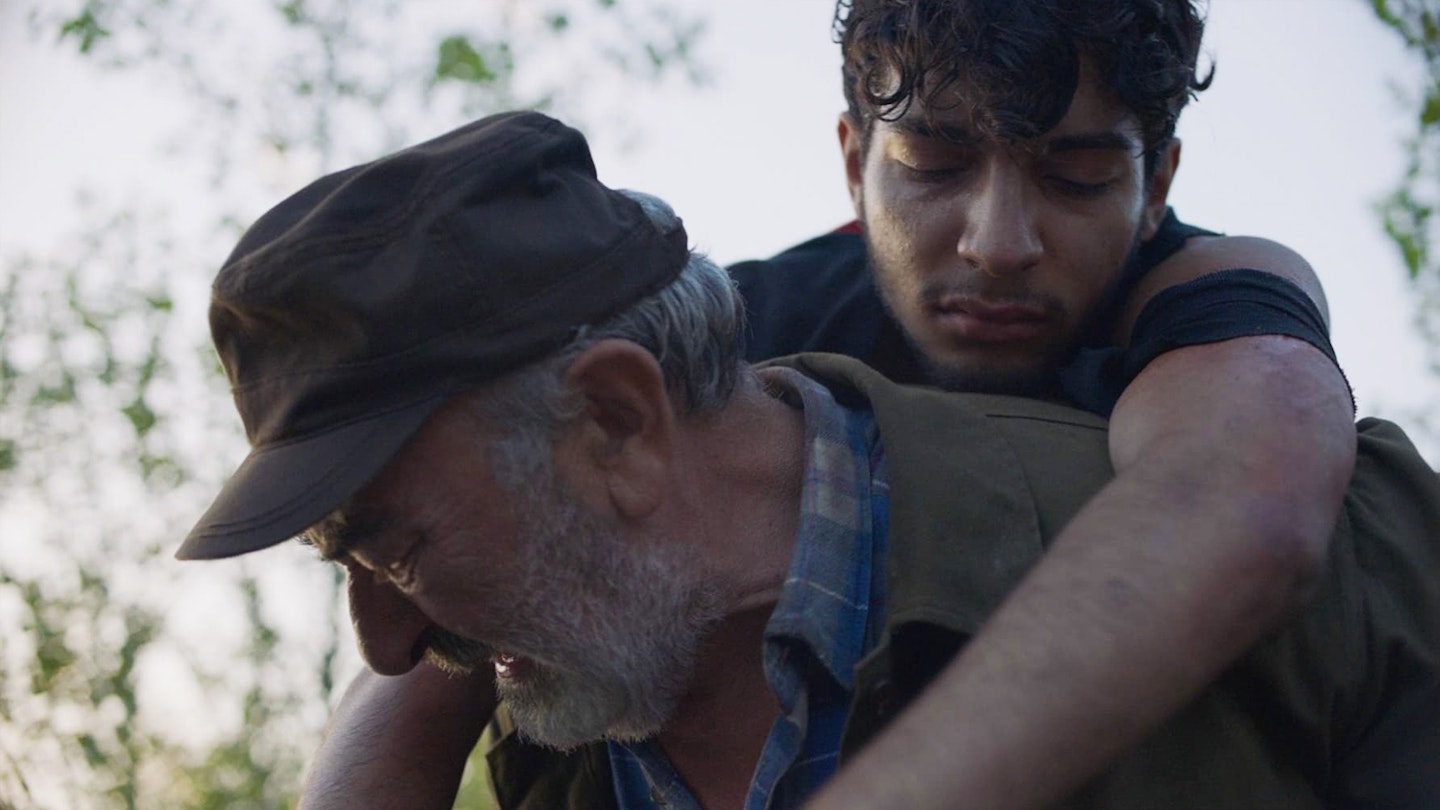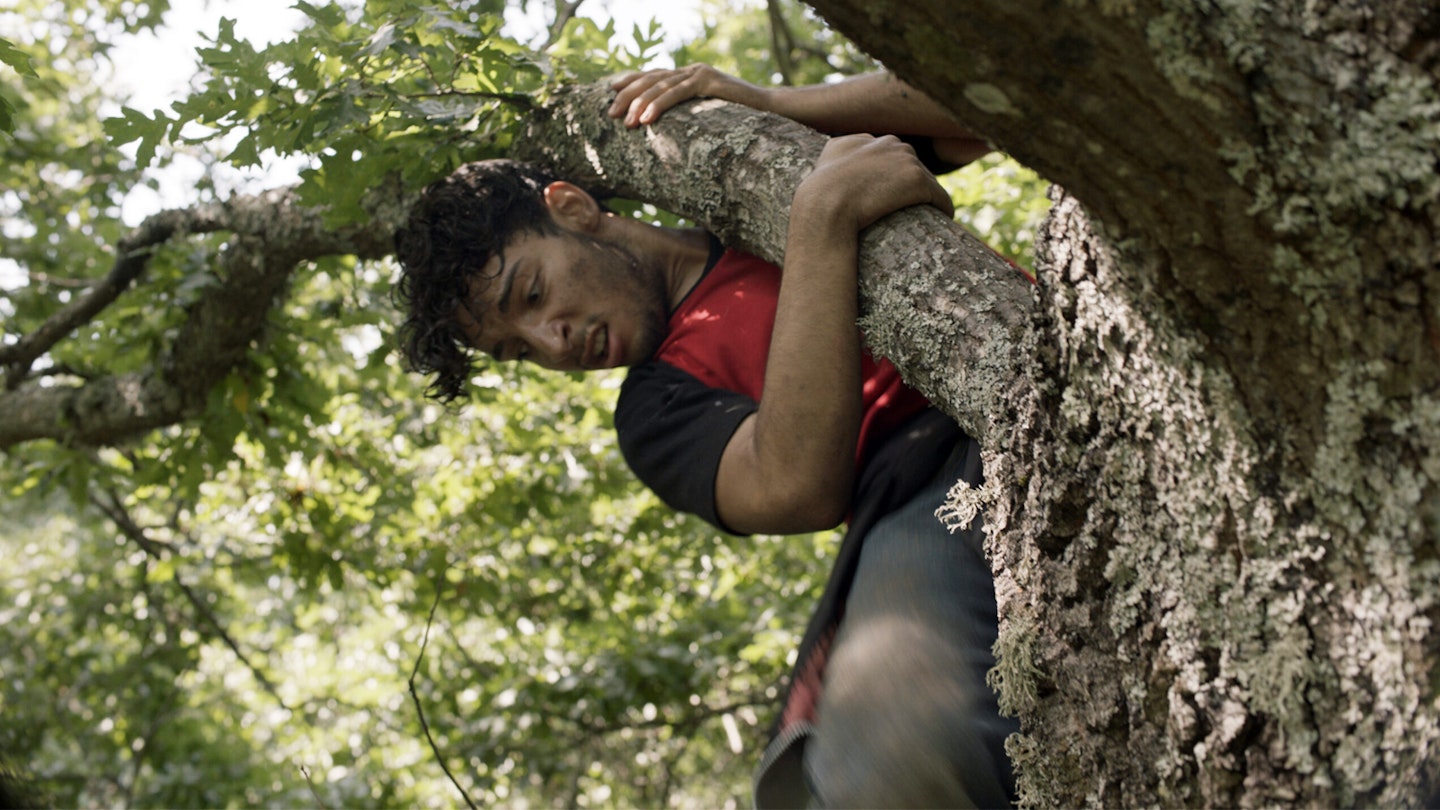Opening captions usually provide a bit of context. But the text prefacing Iraqi-Italian Haider Rashid’s third feature pitches the viewer directly into the nightmare that is about to befall the twentysomething Kamal, at the hands of the border police and migrant hunters whose xenophobic banditry is covertly sanctioned by their national governments.
Nothing is revealed about Kamal’s homeland plight. But pasts don't matter. All that counts is the present and surviving it to have any hope of a future. Fleeing from the thugs who captured his travelling companions, Kamal trusts to luck, as he makes his way through the forest. Having witnessed one man being shot dead, he tries to cover the corpse of another before fending off a masked gunman and seeking help for a gashed arm from a passing female motorist.

Barely a word is spoken. But the camera sticks so closely to Kamal’s face (remarkably, even when he climbs a tree) that every expression conveys his pain and fear. With the background a blur, it’s easy to become disorientated, as Kamal intuitively navigates by the sounds of helicopters, gunfire and waterfalls.
There are quiet moments, as he rehumanises by peeling off his Mohamed Salah Egypt shirt to wash, prays over the body of a fallen comrade and sings a song about mother love. But, such is the viscerality of the handheld imagery that even an interlude in the front seat of a car is unbearably tense, as the driver is torn between basic decency and scare stories on the radio. She panics, but the householder finding Kamal stealing food is more decisive in setting up the agonisingly ambiguous denouement.
Mancunian Adam Ali is exceptional as the fugitive, but Rashid is equally indebted to cinematographer Jacopo Caramella and sound designer Gabriele Fasano for making the migrant ordeal so harrowingly authentic.
